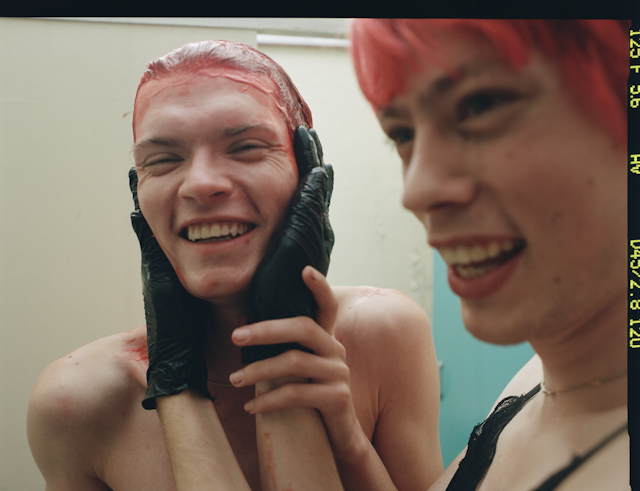Look out Snap: WhatsApp promotes View Once feature in candid new film
Meta-owned messaging app WhatsApp has today unveiled a brand campaign designed to promote its View Once function for sharing ephemeral media. The effort aims to attract a younger audience, steal users from Snap and promote privacy amid growing concerns about user data protection.
Less than a week after parent company Facebook rebranded to Meta and announced that it aims to transform from a social media company to a metaverse company, WhatsApp has launched a new global campaign designed to celebrate authentic connection.
The new campaign ‘Private moments you only view once’ promotes the app’s View Once feature, which, like on Snapchat, enables users to send a photo or video that can be viewed just once and won’t be saved to users’ media galleries. The feature adds an extra layer of privacy to the end-to-end encrypted messaging platform. The new ads live under WhatsApp’s ‘Just send it’ umbrella campaign.
The new campaign, created in partnership with BBDO San Francisco and BBDO Germany, encourages users to be authentic and carefree – with the assurance that their message will be fully private and can only be opened one time. The hero film, directed by up-and-coming London-based filmmaker Fenn O’Meally, celebrates inhibited expression, depicting users around the world sharing photos and videos depicting everything from trying on different outfits and dyeing their hair at home to playing with their children and giving it their best shot at a bicycle trick.
“Billions of people use WhatsApp daily to share in ways that bring them closer to one another. View Once gives people the ability to communicate things that don’t need to stick around forever,” says WhatsApp’s global head of brand marketing Vivian Odior.
Not only does the campaign emphasize the freedom enabled by privacy, but it also aims to chip away at the perfectionism often demanded by and depicted on social media. “This film highlights how, via View Once, one can share themselves as they are – any version of themselves – without having to think twice. It captures life as it truly unfolds and what these moments can unlock,” Odior says.
To ensure that the message felt believable, O’Meally and the team tapped their friends and family members to star in many of the scenes – which feature over 35 people from all over the world – and asked them to share real moments in which they would use the product in their own lives. The team used their input to capture the moments portrayed in the film, set against the backdrop of hip-hop duo Eric B. & Rakim’s Don't Sweat The Technique.

“Because we were after the most authentic version of this creative, we kept a dogmatic approach to character and scenes. We wanted people to really be themselves, to reflect their own life and experiences as opposed to play a role and that meant we needed to stay dynamic throughout the process,” says Tres Colacion, BBDO San Francisco’s global creative lead. “It’s interesting because, visually, the film is quite a departure from where WhatsApp and Facebook have been before. But at the same time, the work is incredibly true to reflecting the authentic life of our users.”
The brand marketing initiative builds on the ‘Message Privately’ campaign rolled out earlier this year, which spotlighted the app’s end-to-end encryption on the tails of a privacy debacle that saw many users leave the platform.
It also speaks to a larger trend that’s capturing more investment year by year: ephemeral media. While Snap is often credited as mainstreaming the vanishing media format, it’s been adopted and developed by many of the largest tech players, from Facebook and Instagram to Twitter (though Twitter in July announced it would be phasing out its Fleets feature).
Taking a wider-angle view, the rise of ephemeral media signifies a kind of generational shift in users’ preferred modes of communication. As of this year, over 31% of all US Instagram users were 25-34 years old; the second-largest group, representing nearly 26% of all US users, comprised 18-24-year-olds. Snap’s users tend to be even younger, on average. In 2020, 48% of 15-25-year-old US internet users said they use Snap.
Investing in – and promoting – its ephemeral media capabilities aims to help expand WhatsApp’s reach among younger demographics. Meanwhile, its focus on encryption and user privacy seeks to help the app grow its user base among increasingly privacy-conscious consumers around the world.

